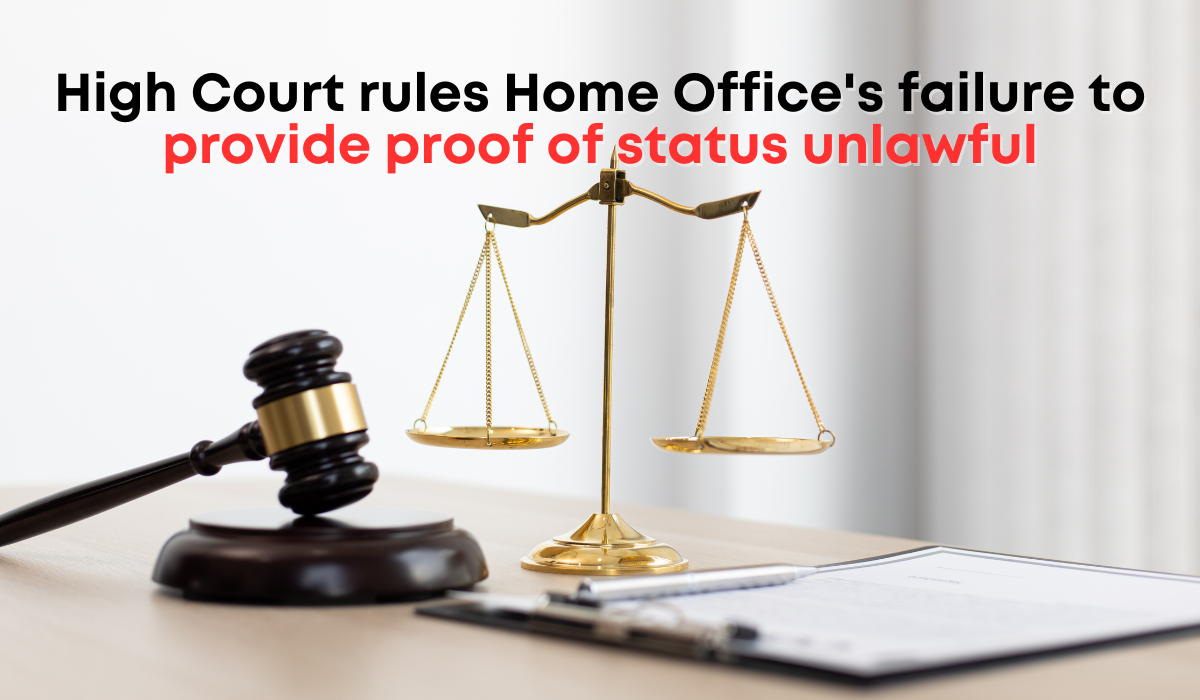

High Court demands Home Office reform for Section 3C Leave
In a landmark decision, the High Court has ruled that the Home Office's failure to provide proof of status to thousands of migrants on Section 3C leave is unlawful. The legal challenge, brought by the Refugee and Migrant Forum of Essex and London (RAMFEL) alongside a former client, highlights significant issues faced by those on Section 3C leave, who often struggle to prove their right to work, rent, and access essential services.Understanding Section 3C LeaveSection 3C leave, part of the 1971 Immigration Act, is an automatic immigration status granted to individuals who submit an in-time application to extend their visa or request a fee waiver. This status ensures that the individual’s rights and entitlements continue under the same conditions as their previous grant of leave. Despite its importance, Section 3C leave is not formally documented, creating substantial difficulties for those who need to demonstrate their legal status.Challenges Faced by Migrants on Section 3C LeaveMigrants on Section 3C leave often face significant challenges in proving their right to work, rent, or access other services. This is primarily because they cannot use a Home Office-generated share code to prove their status. Instead, they must rely on the Employer Checking Service, which is prone to errors and generally underutilized by employers and service providers conducting status checks, such as for right to rent, NHS services, driving licences, and bank accounts.The lack of proper documentation often leads to severe hardship for these individuals, risking employment suspension and denial of services. The case of Ms. Adjei, a healthcare support worker at Whittington Hospital, exemplifies these struggles. While on Section 3C leave, her employer stopped her wages, forcing her family to rely on food banks and borrowed money. It was only through RAMFEL’s intervention that her right to work was eventually verified.High Court's Landmark DecisionThe High Court's ruling declared the Home Office’s failure to provide digital proof of status to individuals on Section 3C leave as unlawful, irrational, and unreasonable. The court mandated that the Home Secretary must now provide digital proof of status to those holding this. The decision acknowledges the severe hardships faced by individuals unable to prove their immigration status and emphasizes that the purpose of Section 3C is to ensure that lawfully present individuals can continue to work and rent while awaiting a Home Office decision.Moreover, the court found that the Home Secretary had breached the duty under Section 55 of the Borders, Citizenship, and Immigration Act 2009 by not considering the impact on children. This ruling signifies a crucial step in addressing the systemic issues affecting migrants on Section 3C leave and upholding their rights.Implications and Next StepsFollowing the ruling, the Home Office must update its policy on Section 3C leave to ensure affected individuals can prove their status. The court has tasked the parties involved to agree on reasonable measures and a timeframe for implementation. A potential solution is the provision of digital status, similar to the Certificate of Application under the EU Settlement Scheme. However, integrating this into the eVisa system poses significant challenges, especially given the ongoing issues with the eVisa rollout, including technical errors and lack of provision for vulnerable migrants.For visa holders, it is crucial to note that documentation for Section 3C leave should not lead to complacency about visa expiry dates. If an application is refused while on this leave, the individual may become an overstayer. Therefore, it remains vital to submit applications as early as possible.If you are concerned about how this decision affects your organisation’s right to work procedures or your personal immigration status in the UK, consulting with immigration compliance experts is advisable. The ruling represents a significant advancement in ensuring the rights and dignity of migrants are upheld, providing a more secure future for those navigating the complexities of the UK immigration system.Get in touch: For a comprehensive understanding of your options or queries on UK immigration matters, contact GigaLegal Solicitors at 02074067654 or click here to book a no-obligation consultation with an immigration expert.
How we help?

Over 400 cases solved
At GigaLegal, we treat your legal matters with the same care and urgency as if they were our own. Our highly experienced solicitors are committed to protecting your rights, freedoms, and future. With a results-driven mindset and a deep sense of responsibility, we work tirelessly to deliver the strongest possible outcome for every client we serve.
.png)
.png)
.png)
.png)
.png)
.jpg)
.jpg)
Aldgate branch
Dagenham branch
.jpg)



.png)
.jpg)
.jpg)
.jpg)
.jpg)
.jpg)

.jpg)
.jpg)
.jpg)